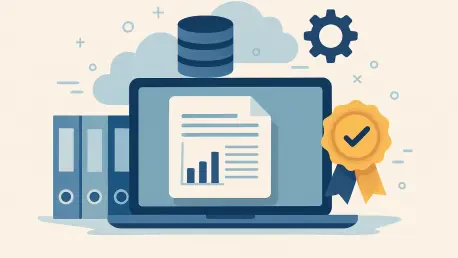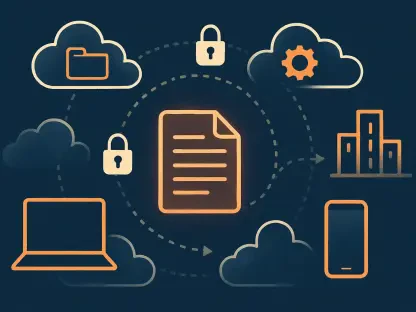I’m thrilled to sit down with Chloe Maraina, a renowned expert in Business Intelligence with a deep passion for crafting compelling visual stories through big data analysis. With her sharp skills in data science and a forward-thinking vision for the future of data management and integration, Chloe is the perfect person to guide us through the intricacies of the Certified Data Management Professional (CDMP) certification and its impact on the industry. In our conversation, we explore the significance of the CDMP designation, the foundational knowledge it represents, the structure and levels of the certification, and the tangible benefits it offers to both individuals and organizations. Let’s dive into this insightful discussion!
How did you first come across the Certified Data Management Professional (CDMP) certification, and what inspired you to see it as a valuable credential for data professionals?
I stumbled upon the CDMP certification early in my career while looking for ways to solidify my expertise in data management. It stood out because it’s backed by DAMA International and grounded in the Data Management Body of Knowledge (DMBoK), which is essentially the bible for our field. What inspired me was how it provides a structured way to demonstrate not just knowledge, but also practical skills and commitment to the craft. It’s a benchmark that tells employers and peers alike that you’re serious about mastering the complexities of data management, from governance to architecture.
Can you walk us through the core purpose of the CDMP certification and how it reflects a professional’s capabilities in the field?
Absolutely. The CDMP certification is designed to validate a professional’s expertise across a wide range of data management disciplines. It shows that you’ve got a firm grasp on critical areas like data quality, governance, and integration, and that you can apply this knowledge in real-world scenarios. Earning it signals a level of dedication and competence that sets you apart, whether you’re just starting out or you’re a seasoned expert. It’s not just about passing a test—it’s about proving you can handle the strategic challenges of managing data as a business asset.
What role does the Data Management Body of Knowledge (DMBoK) play in shaping the CDMP certification, and why is it such a cornerstone for professionals?
The DMBoK is the foundation of the CDMP certification. It’s a comprehensive guide that covers everything from data modeling to ethics and big data, providing a holistic view of what effective data management looks like. For the CDMP exams, it’s the primary reference, ensuring that candidates are tested on industry-standard concepts and practices. I see it as a cornerstone because it’s not just a study tool—it’s a resource that professionals can return to throughout their careers to navigate the evolving challenges of data management. It keeps us aligned with best practices globally.
How would you describe the structure of the CDMP exams, and what should aspiring candidates focus on when preparing for the Data Management Fundamentals test?
The CDMP exams are rigorous but fair. The core exam, Data Management Fundamentals, covers 14 key topics, with areas like data governance, quality, and metadata management carrying the most weight at 11% each. It’s a 100-question, multiple-choice test that’s vendor-neutral, so it’s all about conceptual understanding and application. For candidates preparing, I’d recommend focusing on the heavily weighted domains first and really diving into the DMBoK. Practice exams are a game-changer too— they help you get a feel for the types of questions, like identifying components of data governance or defining master data.
Could you explain the different levels of CDMP certification and how they cater to professionals at various stages of their careers?
The CDMP offers four levels: Associate, Practitioner, Master, and Fellow. Associate is great for those with six months to five years of experience, requiring a passing score of 60% on the Fundamentals exam. Practitioner, for those with two to ten years, and Master, for professionals with over ten years, both require higher scores and additional Specialist exams. Fellow is unique—it’s by nomination for thought leaders with over 25 years of impact. Each level builds on the last, allowing professionals to progress as their skills and experience grow, from foundational knowledge to deep expertise and industry leadership.
Who do you think is the ideal candidate for pursuing a CDMP certification, and what unique value does it bring to them?
Honestly, anyone in data management—whether you’re in governance, quality, architecture, or even aspiring to these roles—should consider the CDMP. For early-career folks, it’s a fast track to learning the full spectrum of data management and how everything connects within an organization. For seasoned pros, it validates their expertise and fills in any knowledge gaps. The unique value lies in its credibility; it’s a globally recognized standard that boosts your reputation and employability, often opening doors to better roles or higher pay.
What are some of the standout benefits of earning a CDMP certification, both on a personal level and for the organizations that employ certified professionals?
On a personal level, the CDMP is a game-changer. It enhances your credibility, makes you more competitive in the job market, and often leads to better salary prospects—data architects with CDMP can average around $160,000, for instance. It also prepares you for bigger responsibilities and connects you to a global community of professionals. For organizations, having CDMP-certified staff means confidence in their data programs. It ensures their teams are equipped to manage data as a strategic asset, especially with rising privacy regulations like GDPR. It’s a win-win.
Looking ahead, what is your forecast for the future of data management certifications like CDMP in shaping the industry?
I believe certifications like CDMP will become even more critical as data continues to drive business strategy. With the explosion of data volume and complexity, plus stricter regulations, employers will increasingly rely on certified professionals to ensure trust and competence in managing data. I foresee the CDMP evolving to incorporate emerging areas like AI ethics and advanced analytics, staying ahead of industry trends. It will likely remain the gold standard, shaping a workforce that’s not just skilled, but also adaptable to whatever comes next in the data landscape.









